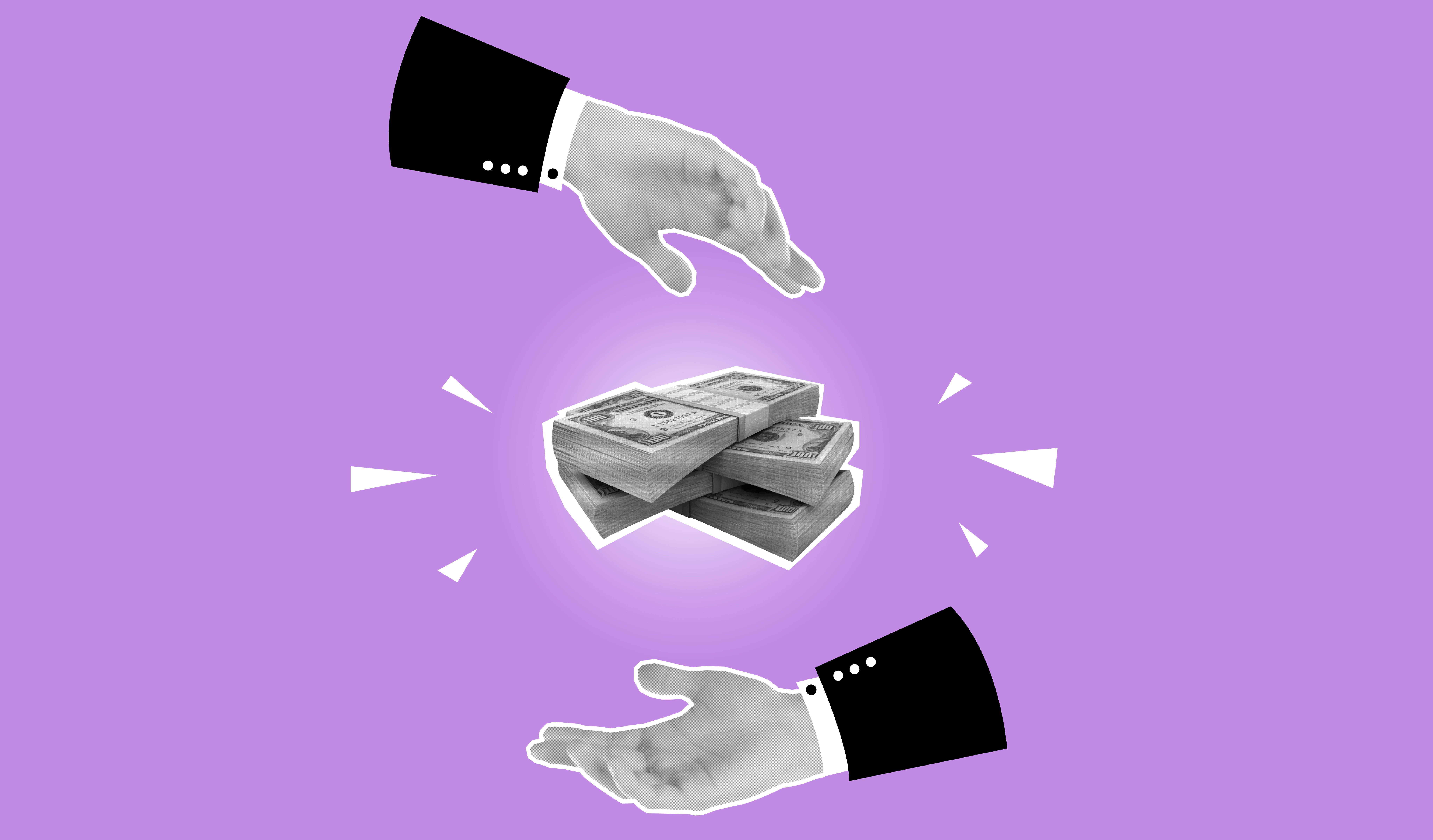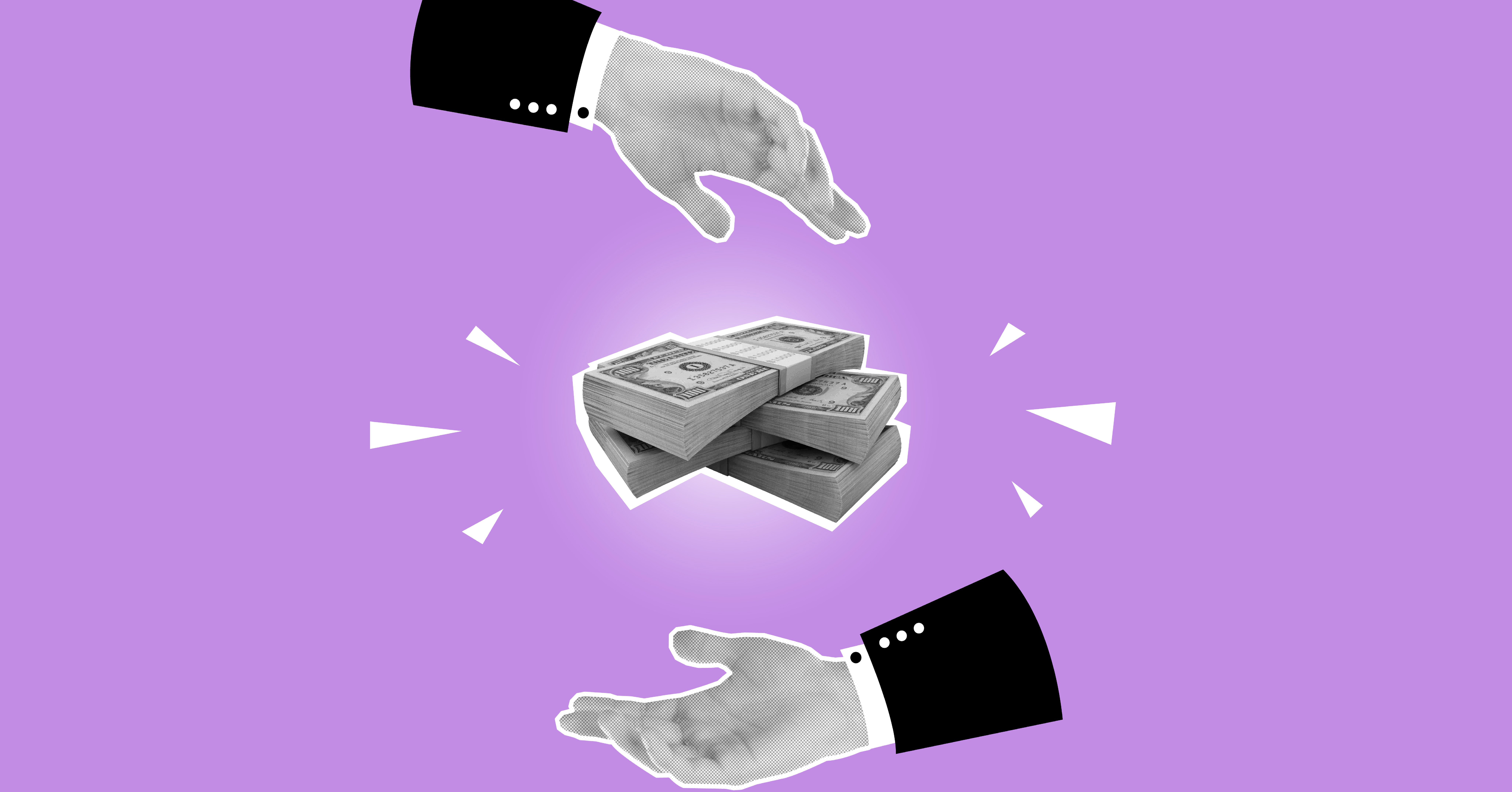What Is Income Inequality and How Do We Fix It?
In 2019, the top 5% earned over 20% of income in the United States, with their average household income resting above $400,000. In total, 80% of the population earns less than half of the country’s income, with the bottom 20% of the population earning only 3.1%. This disparity of earning is income inequality, and the difference between the top percentiles of annual income and the rest of the population continues to widen every year.
The difference between the wealthiest 1% and the rest of the country is not just about how much money one makes. It also has a lot to do with their economic mobility, or ability to sustainably improve economic status – usually measured through income. Many systems, like healthcare and education, exacerbate economic inequalities, keeping those in lower financial brackets in cycles of poverty.
But where does income inequality really come from? And how is income different from payment or wealth? In this blog we answer those questions, highlighting the causes and effects of income inequality, along with direct ways to address economic inequality in the United States.
What is Income Inequality?

It may seem self explanatory: income is the amount of money one gets annually. However, this is not the whole picture. Income is different from payment or wealth, specifically referring to “all the money received from employment (wages, salaries, bonuses etc.), investments, such as interest on savings accounts and dividends from shares of stock, savings, state benefits, pensions (state, personal, company) and rent.” This means that income inequality does not just represent differences in payment, but all other forms of employment compensation and reimbursement. This distinction is important because it underlines some of the systems which perpetuate our current economic inequities.
Take action: compare your income with the rest of the country.
The largest of these systems is the healthcare industry. Even with the Affordable Healthcare Act, most uninsured Americans cite the high cost of healthcare as the primary reason why they do not have coverage. Not only can millions of Americans not afford coverage, but their jobs do not provide health insurance either. To people paying medical bills out of pocket, one medical situation could bring about financial ruin, limiting the ability for economic mobility.
- A ground ambulance ride can cost between $500 to $1,000.
- Delivering a baby can cost between $5,000 to $11,000.
- Surgery to treat a broken leg can cost from $17,000 to more than $35,000.
1 in 4 Americans have trouble paying their medical expenses, and medical debt cuts across all generations and education levels. Whether they are young, college educated, or even relatively financially stable, millions of Americans are blindsided by medical costs, playing a key role in hundreds of thousands of bankruptcies every year.
It has been found that higher levels of education correlate with lower unemployment and higher weekly income. However, higher education has become exorbitantly expensive in the United States. Over the last four decades, the cost of college has increased almost 8 times faster than wages, making higher education less and less available to those in not in the highest economic brackets.
In total, Americans owe over 1 trillion dollars in educational debt, which is 10 times higher than the amount of money the entire federal government spends on education annually. Yet, as mentioned above, college degrees usually mean more job opportunities and money. Increasingly, a college education has become a prerequisite for entering the workplace, pushing millions of Americans into mammoth debt with the hope of someday having the ability to pay it off.
Compared to many other countries, college in the United States is significantly more costly. This means leaving university without crippling debt has become a privilege of the elite, with social and workplace pressures pushing young Americans into debt right as they enter the workforce. The ramifications of this are far reaching, preventing numerous young Americans from purchasing long term investments.
How We Can Fix It

The first step in combating income inequality is to address the minimum wage, and guarantee all Americans can live off their income. Accounting for inflation, the minimum wage has fallen since 1979, as costs of living have continued to rise. The current minimum wage keeps many Americans in debt, forcing them to work two jobs just to make ends meet. To guarantee economic mobility, prospects of long term investment like home ownership, and to raise millions of Americans out of poverty, the minimum wage must be raised to account for inflation.
Besides making more money, healthcare must become more affordable. No one can control when they require medical services, and these incidents can often strike at the worst possible times. Healthcare costs have risen faster than inflation, and continue to balloon at an astronomical rate. It is clear that the United States healthcare system is broken and is in desperate need of repair. To remedy this, we must commit to a system which services people, and not corporations. Everyone must tell their representatives to fight for universal healthcare and demand America joins the rest of the modernized world.
It must also be noted that income inequalities most often affect those facing other systemic inequalities. This is especially true for Black and Latinx communities, who on average have lower wages, comprising almost half of employees working below $15 per hour. While individuals in these communities face the same issues of costly healthcare and education, they are simultaneously affected by systemic forces in and out of the workplace. To end income inequality in America, racist economic systems must also be reformed.
Building An Economically Ethical Future

Wealth inequality is not just something which affects the poor, but negatively impacts everyone. For a universally stronger economic system, we must address the symptoms and causes of income inequality now. To accomplish this however, we need to restructure many elements of our government and larger institutions. If the prospects of education or sickness are enough to send millions into crippling debt, something is wrong with the current system.
To fix the system, we must analyze economic privilege and question who is benefiting from how our country is run. Remedying the systems which enforce economic inequality will be challenging, but it is completely attainable. Basing reform off working systems around the world and redistributing wealth back into essential public services are crucial to making America a more economically equitable place for all.
To learn more about how you can reform the American economic system, check out Impactree’s Economic Action Hub.


